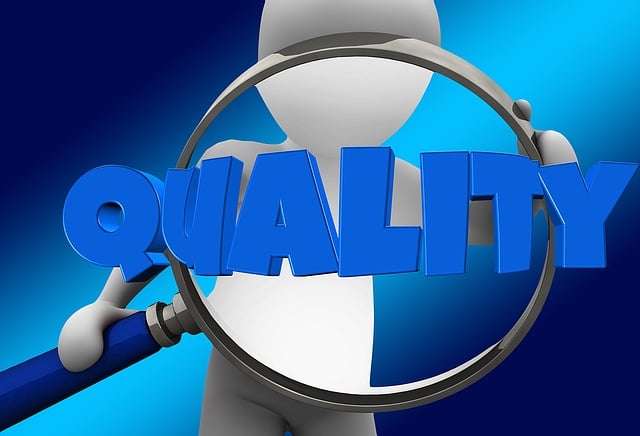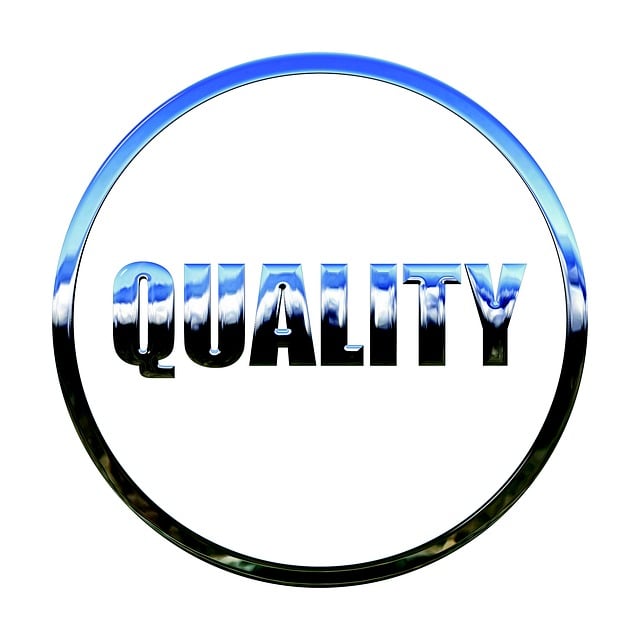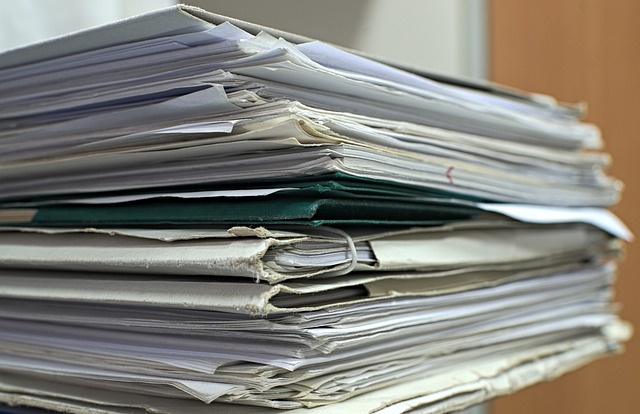Translation services in the UK are critical for delivering precise and culturally relevant content, adhering to stringent QA standards to ensure accuracy, contextual appropriateness, and technical precision. The QA process is a comprehensive and rigorous endeavor involving linguists with specialized knowledge in various sectors such as healthcare, legal, and finance. These experts undergo thorough validation to confirm that their translations align with the source material's original intent and meaning. The commitment to quality extends to robust review mechanisms, adherence to industry-specific standards like ISO 17100, and the use of advanced translation tools, memory systems, and terminology databases to maintain consistency and accuracy across large-scale documentation. This approach not only maintains document integrity but also fosters trust with international partners and regulatory entities. The UK's translation services are renowned for their meticulous QA processes, which are essential for clear communication and legal compliance in specialized sectors, ensuring that all translated documents meet the highest standards of quality assurance documentation.
Navigating the intricate realm of global communication, quality assurance in UK translations emerges as a cornerstone for accuracy and compliance. This article dissects the critical role QA plays within translation services for UK documents, emphasizing the importance of adhering to industry-specific standards. From the initial understanding of why QA is indispensable to delving into the precise methodologies that ensure translation reliability, we will explore key considerations and best practices tailored to the UK context. Join us as we shed light on maintaining the integrity of your multilingual communications through meticulous QA processes.
- Understanding the Necessity of QA in UK Translations
- Industry-Specific Standards for QA in Translation Services
- The Role of Quality Assurance in Translation Accuracy and Reliability
- Key Considerations for QA in UK Translation Services: Challenges and Solutions
- Ensuring Compliance: Best Practices for QA in Translated Documents within the UK Context
Understanding the Necessity of QA in UK Translations

When engaging in translation services for UK audiences, adherence to quality assurance (QA) documentation is paramount. The intricacies of the language and the cultural nuances present within UK-specific content necessitate a rigorous QA process. This process ensures that translations are not only accurate but also resonate with the target audience, reflecting the correct terminology, idiomatic expressions, and regulatory compliance as per industry standards. In the UK, various sectors such as healthcare, legal, and finance have stringent requirements for documentation accuracy; therefore, translations must undergo meticulous scrutiny to ensure they meet these high standards. UK QA translation services employ expert linguists who are well-versed in both the language and the specific industry lexicon, ensuring that the translated content is contextually appropriate, technically precise, and culturally relevant. This commitment to quality goes beyond mere linguistic accuracy; it encompasses a comprehensive approach to validation, verifying that each translated document aligns with the original intent and maintains the integrity of the source material within the UK market.
Industry-Specific Standards for QA in Translation Services

In the realm of translation services, adherence to industry-specific standards is paramount for delivering high-quality outcomes, particularly in the UK where Quality Assurance (QA) is synonymous with excellence. UK QA within translation services encompasses a rigorous process that ensures documentation is accurate, reliable, and culturally appropriate. This involves employing translation professionals who are not only linguistically proficient but also well-versed in the technical nuances of the subject matter. These experts apply specialized knowledge to interpret content accurately, reflecting the original intent and meaning within the target language. The QA process also incorporates stringent review mechanisms, including checks for terminology consistency, grammatical accuracy, and compliance with industry-specific lexicons. This meticulous approach is essential to meet the stringent requirements set forth by standards such as ISO 17100, which provides a benchmark for translation companies striving to deliver high-quality translated documents. By adhering to these standards, UK translation services can guarantee that documentation meets both linguistic and industry-specific needs, ensuring that every translation serves its intended purpose with precision and clarity.
The Role of Quality Assurance in Translation Accuracy and Reliability

In the context of UK businesses operating within specialized sectors, the fidelity and precision of translated documents are paramount for effective communication and legal compliance. Translation services for UK Quality Assurance (QA) documentation must adhere to stringent standards to ensure accuracy and reliability. QA in translation is a multifaceted process that encompasses predefined sets of criteria to assess the quality, consistency, and technical validity of translations. This meticulous evaluation ensures that the translated content aligns with the source material’s intent, tone, and meaning, while also complying with industry-specific regulations and terminology requirements. It is imperative for organizations to engage with translation services that implement a robust QA process, which typically involves multiple stages of review by both language experts and subject matter specialists. This collaborative approach not only upholds the integrity of the translated documents but also fosters trust between businesses and their international partners or regulatory bodies.
The implementation of UK QA within translation services is not merely a checklist item; it is an integral component that drives the quality of the end product. By integrating QA best practices, such as the use of translation memory tools, terminology databases, and advanced technology platforms, translation services can maintain consistency across large volumes of documentation. These practices also facilitate the identification and rectification of errors, ensuring that translations are not only accurate but also culturally relevant and contextually appropriate. For industries such as healthcare, legal, and finance, where the stakes are high and miscommunication can lead to significant consequences, the role of UK QA in translation services is indispensable, safeguarding both the reputation of the organizations and the interests of their stakeholders.
Key Considerations for QA in UK Translation Services: Challenges and Solutions

In the realm of UK translation services, Quality Assurance (QA) plays a pivotal role in ensuring that translations not only convey the original message accurately but also adhere to industry-specific standards. Key considerations for QA in this context involve understanding the nuances of both the source and target languages, as well as the subject matter expertise required for specialized documentation. Translators must navigate complex terminologies and idiomatic expressions that are often domain-specific, necessitating a thorough review process. This is particularly critical in fields such as legal, medical, technical, and financial, where mistranslations can lead to significant consequences.
To address these challenges, UK translation services must integrate robust QA processes into their workflow. These processes typically involve using specialized software that can detect inconsistencies and potential errors, ensuring compliance with industry standards. Additionally, employing experienced translators who are adept at working within specific sectors is essential for maintaining the highest quality of translations. Peer review and collaboration between translators and subject matter experts are also key to refining the accuracy and relevance of the translated content. By prioritizing these solutions, UK translation services can deliver documentation that not only meets but surpasses the expectations of clients who require precise and reliable translations tailored to their unique industries.
Ensuring Compliance: Best Practices for QA in Translated Documents within the UK Context

When engaging in translation services for UK Quality Assurance (QA) documentation, it is imperative to adhere to stringent compliance standards that are specific to each industry. This commitment to quality ensures that translated documents accurately reflect their source material and are functionally equivalent within the UK context. Best practices begin with meticulous selection of translators who not only possess linguistic expertise but also have a deep understanding of the relevant industry terminology and regulatory frameworks. These professionals should be well-versed in standards such as ISO 17100, which outlines the competence of translators and interpreters, and sector-specific guidelines like GxP for pharmaceuticals or GLP for laboratory testing.
In addition to employing knowledgeable translators, robust QA processes are essential to ensure the integrity of translated documents. This involves a systematic review process where translations undergo multiple checks by different experts, including forward translation by native speakers and back-translation comparison to verify accuracy. Utilisation of specialised translation memory software and terminology management systems further enhances consistency and precision across all industry-specific documentation. By integrating these best practices, translation services for UK QA documentation can confidently meet the high standards required, thereby facilitating seamless communication and compliance across various industries within the UK market.
In conclusion, businesses operating within the UK must prioritize quality assurance in their translation services to navigate the intricate landscape of industry-specific standards. This commitment to QA in UK translations not only enhances accuracy and reliability but also ensures compliance with regulatory requirements. Adhering to best practices for QA in translated documents is paramount, as it reflects a company’s dedication to excellence and respect for its stakeholders. By implementing robust QA processes, organizations can confidently communicate across languages and cultures, thus expanding their reach and reputation within the global marketplace.
